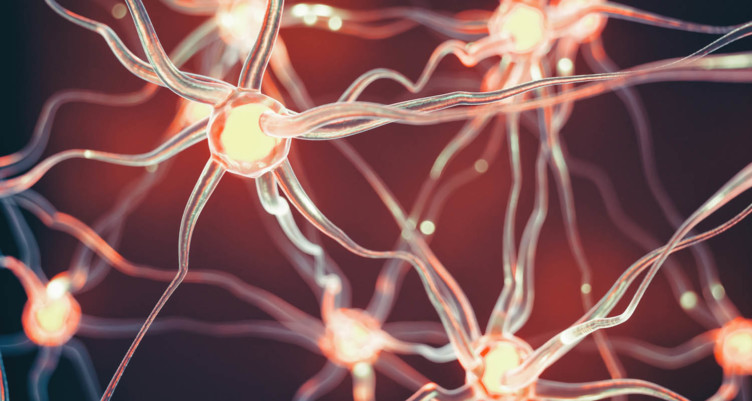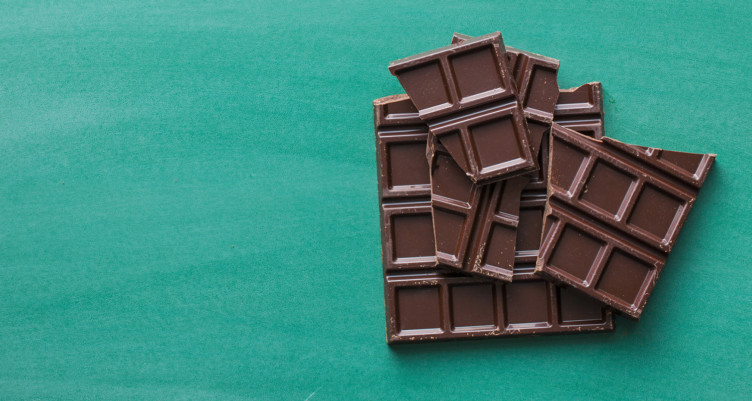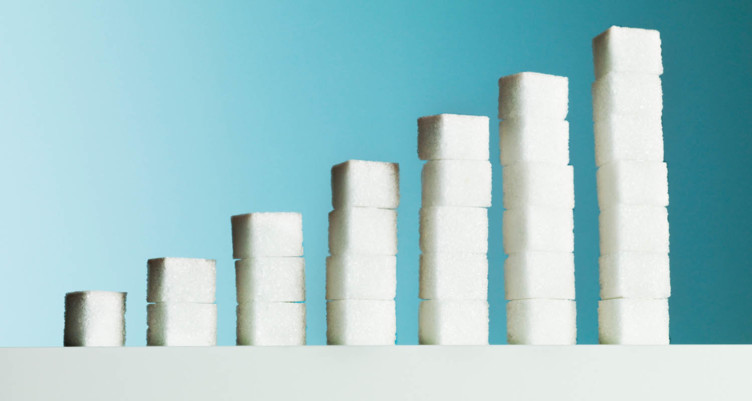The Effects of Sugar on the Brain (Trust Us, It’s Not Pretty)

- Sugar is everywhere. It’s naturally found in foods like fruit and dairy. But it’s also added to many of the foods you might eat daily, and too much sugar spells bad news.
- Sugar is easily accessible and tastes delicious, but it’s easy to go overboard. It can lead to energy crashes, mood swings and even insulin resistance in the long-term.
- Get the details about the effects of sugar on the brain and body. Then, find out how to beat those sweet cravings.
Honey. High fructose corn syrup. Sucrose. Sugar comes in many different forms, from naturally occurring sugars in fruit to refined table sugar. But regardless of its source, sugar can cause trouble when it’s consumed in large amounts—and it starts in your brain. The effects of sugar on the brain can feel small, like a persistent chocolate craving. Or the effects can be major, like insulin resistance and impaired brain function after years of too much sugar.
But why, exactly, is sugar a problem? How does sugar affect the brain? And is there a better way to get the energy you need, without all the negative side effects?
Does your brain need sugar?

When you eat sugar and starchy carbs, your body breaks the food down into glucose and fructose for energy. Your liver has to process fructose for it to be used by the body, but all the cells in your body use glucose. And because your brain is home to so many nerve cells, your brain uses the majority of glucose in your body for fuel.
In fact, research shows the brain accounts for 20% of the body’s glucose utilization.[1]
So, yes, your brain needs some glucose to function. (Even those on the strictest keto diet can make glucose for their brains from other energy sources, like protein.) But on the typical American diet, the brain gets way more than it needs.
The average American consumes 82 grams of added sugar per day—more than triple the World Health Organization’s recommendation of 25 grams per day.[2]
And when it comes to sugar intake and the brain, more isn’t better.
Your brain is the control center for your body. When there’s too much sugar in your system, it throws the control center out of whack. Those negative side effects can translate to mood shifts, weight gain, hormonal changes, obesity and even more serious health problems.
Too much sugar is so problematic that it’s one of the reasons we don’t use refined sugars in Bulletproof products. Instead, we use alternative sweeteners we believe in, like monk fruit, stevia and erythritol. We use these sweeteners because they won’t spike your blood sugar.
For instance, you’ll find xylitol and erythritol in Bulletproof Gummy Vitamins—because gummy vitamins don’t need sugar.
Keep reading to find out what sugar does to your body and brain (and how to beat those sugar cravings).
How does sugar affect the brain?

Our bodies essentially evolved to favor easily accessible sources of energy, like sugary foods. In fact, sweet foods activate the neurotransmitter dopamine and actually light up your brain’s reward systems.[3]
“The short-term reward circuitry in the brain that enhances dopamine production is directly enhanced by sugar consumption,” says neurologist David Perlmutter, MD, author of “Grain Brain.”
“Consumption of sugar…stimulates specific areas of the brain that are linked to addiction. These areas are the same ones that light up on brain imaging studies when subjects are given cocaine,” Permutter says.
In one study, researchers used functional magnetic resonance imaging (fMRI) to study the changes in participants’ brains after consuming a meal of high-glycemic-index foods versus a meal with low-glycemic-index foods.[4] “High-glycemic foods” are foods that raise your blood sugar, like cake and white bread.
Researchers found significantly higher levels of activity in the areas of the brain responsible for reward and craving after the high-GI meal. They also found that participants who consumed a high-GI meal reported increased feelings of hunger.
In a nutshell, eating sugar activates your brain’s reward center. As a result, you start craving more sugar. You’re hungry, so you go straight for more high-glycemic foods—and then you start the whole cycle over again. Sounds like sugar addiction, right?
Here’s the problem with that cycle: The effects of sugar on the brain interfere with your ability to feel and perform your best.
Sugar and your mood

Sugar can have a negative impact on your mental health and wellness—particularly when it comes to your ability to maintain a healthy mood.
One of the primary causes of depression is the hormone serotonin (or, more specifically, the lack thereof). Sugar messes with the body’s ability to produce serotonin, which can lead to depression.
The first way sugar impacts serotonin production? In the gut. “Most serotonin [about 90%] is produced in the gut. If the function of your gut is compromised from overloading it with too much sugar, you’ll have trouble with important gut functions like digestion, immune cell formation and serotonin production,” says nutrition expert Dan DeFigio, founder of BeatingSugarAddiction.com.[5]
A high amount of sugar can also impact your brain’s ability to produce and utilize serotonin over time. “B vitamins—especially folic acid—are essential for the production of serotonin. A high-sugar diet forces your body to use up its B vitamins to metabolize the sugar, leaving none for the production of serotonin or other important uses,” says DeFigio.
The impact sugar has on anxiety has a lot to do with how it affects your blood glucose levels. DeFigio says that sugar abuse initiates a blood sugar roller coaster that can feel like an anxiety attack. When blood sugar levels crash, the brain becomes desperate for energy, and your body can become shaky, weak, confused and anxious in your hypoglycemic state (another name for “low blood sugar”).
“As blood sugar levels plummet, the brain reacts by sending out a panicked adrenaline alarm, leading to anxiety,” says DeFigio. “[In addition,] when you eat too much sugar, the amount of a protein called brain-derived neurotrophic factor (BDNF) decreases. BDNF plays an important role in reducing anxiety, panic and stress reactions, so a deficiency can exacerbate these conditions.”
Sugar, insulin resistance and brain function

When we think of the hormone insulin, we think of regulating blood sugar—but it’s also an important part of brain function.
“As more dietary sugar is consumed, the hormone insulin becomes less effective. Insulin helps maintain the health and growth of brain cells,” says Perlmutter. “As things progress and blood sugar becomes more and more elevated, the brain becomes even more resistant to the important actions of insulin.” And as that happens, cognitive function declines.
In a study that followed over 5,000 participants over the course of a decade, researchers found that people with high blood sugar had significantly faster rates of cognitive decline—and the higher the sugar, the swifter the decline.[6]
In fact, people with type 2 diabetes are twice as likely to develop dementia, which is why Alzheimer’s disease is also referred to as type 3 diabetes.[7]
How to fuel your brain and body with lasting energy

Clearly, sugar is a nightmare when it comes to brain function. But luckily, there’s an alternative that will get your brain the energy it needs without all the negative side effects—and that’s ketones.
“Ketones set the stage for brain health and function both directly by serving as super fuels for brain cells, as well as by triggering expression of our DNA that allows us to create chemicals that actually enhance the growth of new brain cells as well as their connection to each other,” says Perlmutter.
A high-fat, lower-carbohydrate diet gives the brain more efficient fuel than a diet heavy in carbs and sugars (which creates excess glucose). For example, a study found that a ketogenic diet produced enhanced mitochondrial gene expression in the hippocampus, the area of the brain responsible for learning and memory.[8] Pretty smart.
What’s more, eating more quality fats helps you feel more satisfied, without the effects of sugar on the brain you get from a high-carb meal (looking at you, energy crashes). Ketones actually help curb cravings while keeping you fueled—one of the big benefits of the keto diet.
“By and large, a diet that favors sugar and carbs is a diet that steers a person away from burning fat. And that’s really threatening for brain function. Burning fat, and not sugar, is the ideal scenario for brain functionality,” says Perlmutter.
Here’s one powerful way to boost your ketone levels: Bulletproof Brain Octane C8 MCT Oil. It’s sourced purely from coconuts (with no coconut flavor), which makes it easy to add to literally any food or drink you want. We like it in Bulletproof Coffee.
Now that we’ve covered what sugar does to your body and brain, are you ready to kick your sweet tooth to the curb? Find out how to detox from sugar.
And don’t worry—dessert can still taste indulgent and satisfying, without all the added sugar. Take a look at these keto dessert recipes that’ll satisfy your sweet tooth.
Sign up for early access to sales, product launches, the latest Bulletproof news and more!
This article has been updated with new content.



